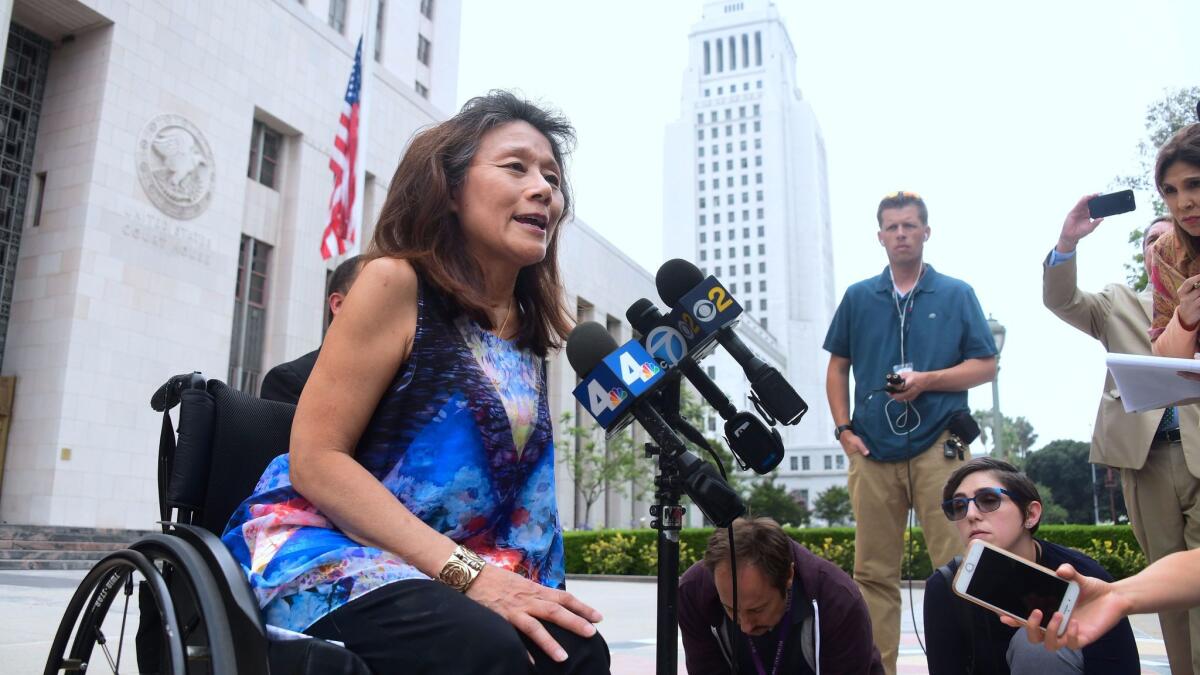Prosecutors spell out their case against L.A. over housing for the disabled

Los Angeles city officials used federal funds to build housing that had sinks, doorways, balconies and other features that could not be used by people in wheelchairs, prosecutors allege in new federal documents.
The complaint, filed Monday by the U.S. attorneyâs office, amends a lawsuit lodged by two whistle-blowers against the city and its Community Redevelopment Agency six years ago.
Prosecutors contend the city fraudulently obtained millions of dollars in federal grants by falsely certifying that the money was being spent in a way that complied with federal accessibility laws. Those laws require that a percentage of federally funded housing projects serve tenants who use wheelchairs or have other impairments.
In the updated filing, prosecutors said federal housing funds have been provided to the city for more than 300 residential projects since 2001. Yet those properties are âlargely inaccessible,â the complaint says.
Prosecutors allege that neither the city nor the redevelopment agency maintained a wait list of accessible units for people with disabilities, as required by federal law. They also identified design problems in dozens of projects, such as:
⢠Balconies too narrow to be used by people in wheelchairs,
⢠Ramps and doorway thresholds too steep for wheelchairs to roll over,
⢠Steps that blocked access to common areas,
⢠Mailboxes, sinks and grab bars installed beyond the reach of wheelchair users,
⢠A lack of visual alarms and tactile signs to help residents with hearing or visual impairments.
Representatives of City Atty. Mike Feuer declined to comment. Two months ago, Feuer spokesman Rob Wilcox called the U.S. attorneyâs actions in the case an âabuse of power.â
Wilcox said the city had already shown its commitment to accessible affordable housing by reaching a legal settlement with three nonprofit groups that made similar allegations. That agreement, approved last year, calls for the city to spend more than $200 million over a decade to ensure that 4,000 units of affordable housing are accessible to those with disabilities.
One of the three nonprofit groups that settled, Fair Housing Council of the San Fernando Valley, filed the whistle-blower lawsuit, along with a North Hollywood resident who uses a wheelchair.
Prosecutors said that the federal government is entitled to an amount equal to triple the damages suffered for each fraudulent act committed. Thom Mrozek, a spokesman for the U.S. attorneyâs office, said his agency does not have a specific damage amount.
âOur goal is to see the United States fully compensated and to deter similar misconduct,â Mrozek said in an email.
The complaint also calls for the city to pay penalties. Under the False Claims Act, violations that occurred before Nov. 2, 2015, carry a penalty ranging from $5,500 to $11,000, according to the filing.
Twitter: @DavidZahniser
More to Read
Sign up for Essential California
The most important California stories and recommendations in your inbox every morning.
You may occasionally receive promotional content from the Los Angeles Times.










